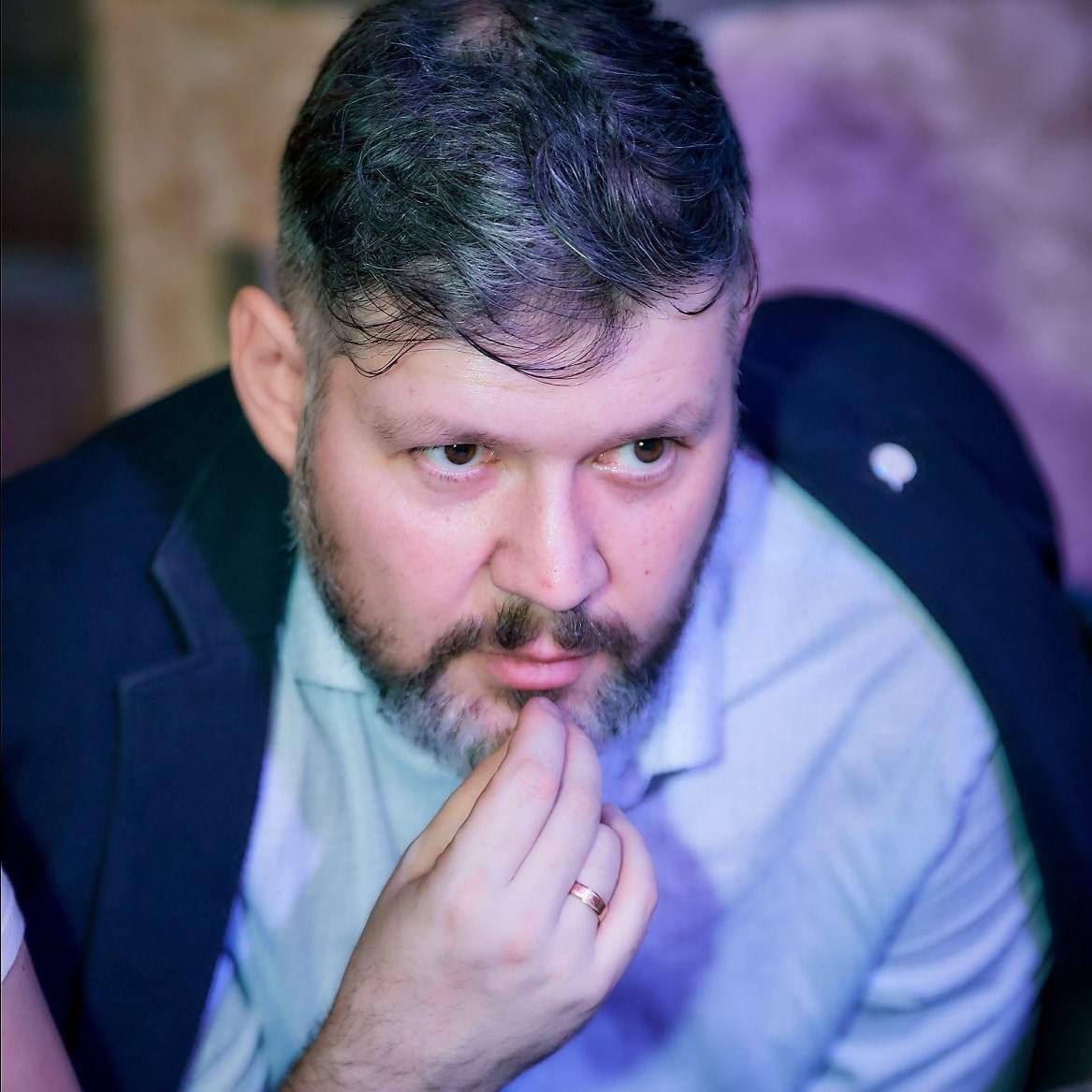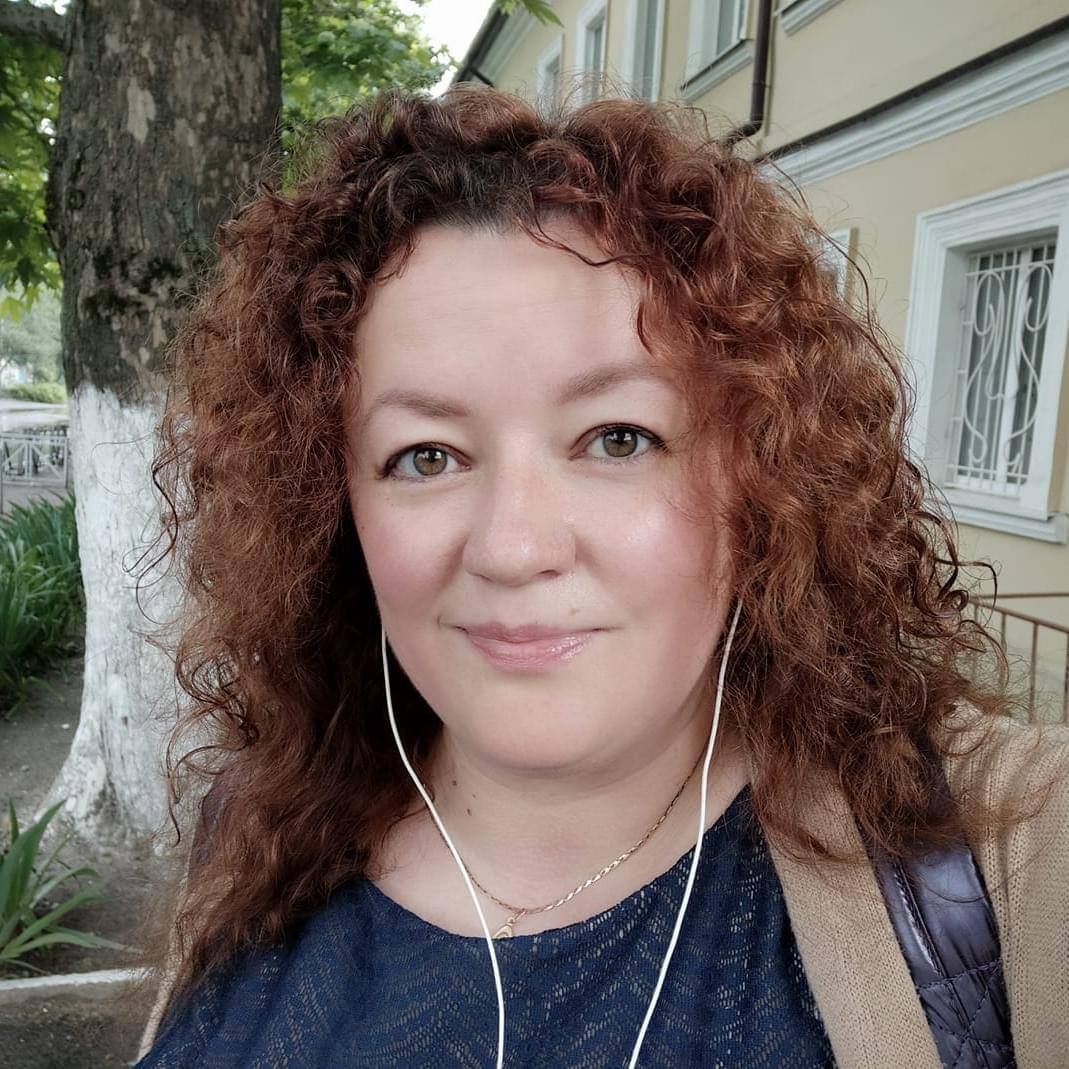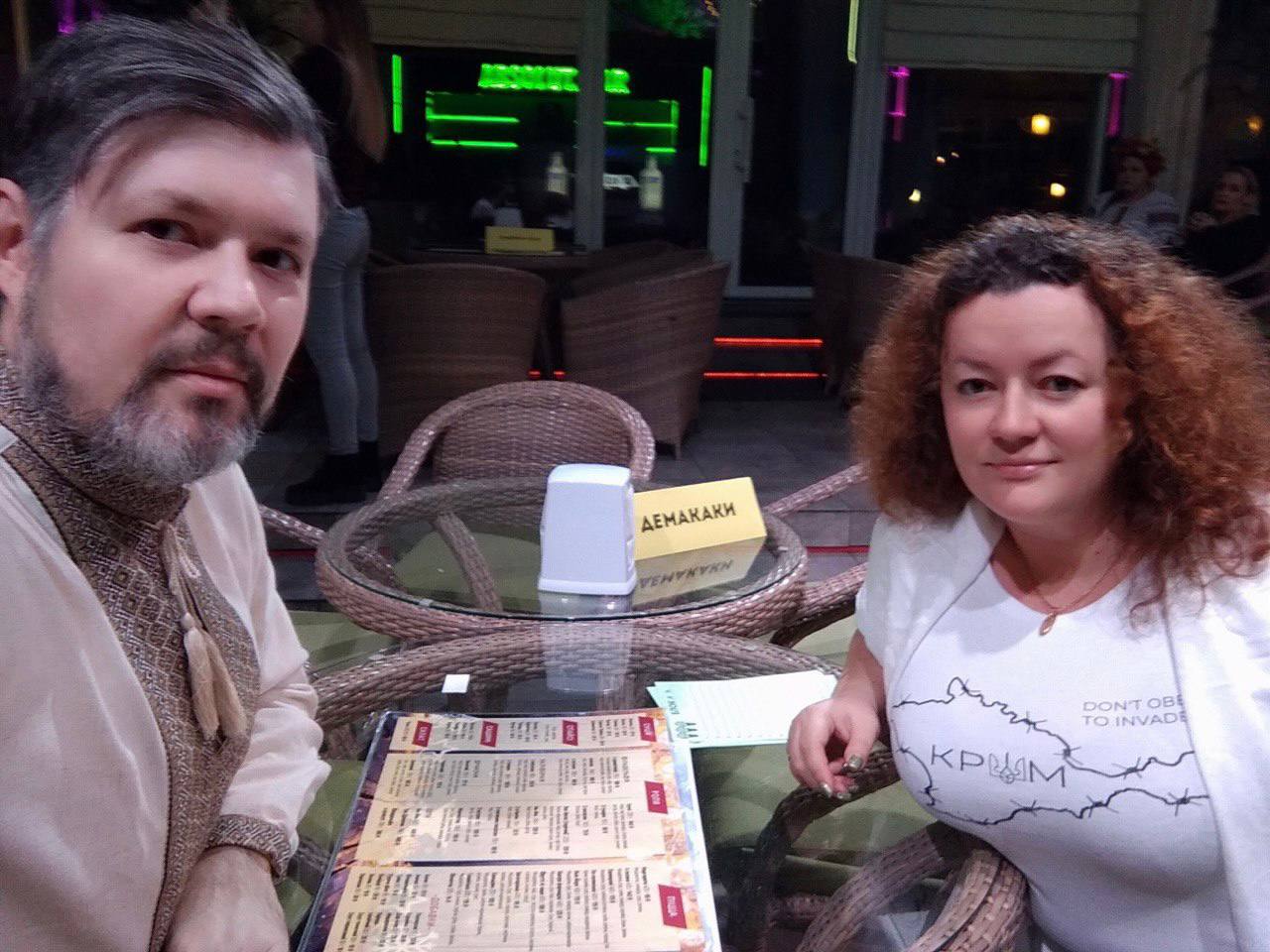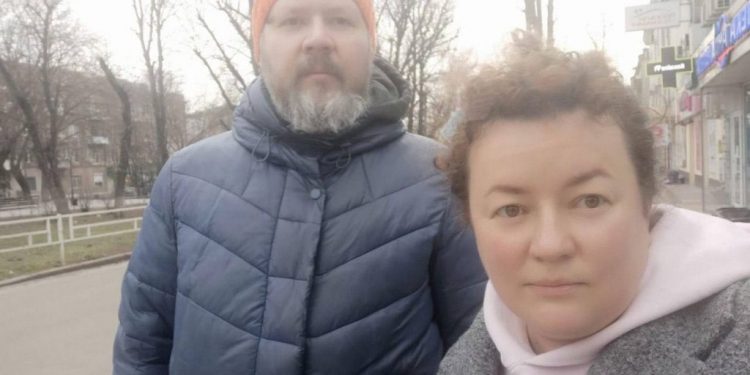Yevheniya Virlych, the chief editor of one of the most renowned publications in Kherson, Kavun.City, along with her husband Vladyslav Hladky, continued their work during occupation until July. They evaded the FSB, changed apartments, and devised codes, but eventually had to leave their hometown.
“Communication was poor, and many people thought we weren’t in Kherson. But there wasn’t a single day when we missed the news.”
For Yevheniya Virlych, November 11th is like a second birthday. The day of the liberation of her native city, Kherson, was celebrated with great festivity in the capital by her and other temporary residents from the south.
— There are still products from our region in stores – we bought precisely those and celebrated! And besides, there were cakes and various treats, because how could we not celebrate! Although, at first, we didn’t believe it: there was a feeling that the flag unfurled by the partisans in Svoboda Square was either manipulated or a false start… We were afraid of celebrating prematurely, but then when we saw people gathering in the square, we understood that it was indeed true, — the joyful journalist recounted.
Yevheniya’s husband, Vladyslav Hladky, a journalist and civic activist, also celebrated the liberation of Kherson alongside his wife. He mentions that staying under occupation was extremely perilous, even though, for a certain period, they hadn’t planned to leave. They worked covertly for nearly six months, writing the truth about what was transpiring in occupied Kherson.

— The initial months were spent there. Communication was poor, and many people thought we weren’t in Kherson. But there wasn’t a single day when we missed the news — the journalist recalls life in the occupied city. — We worked every day; otherwise, Russian propagandists would have completely flooded the local information space with their falsehoods. I was the last to leave our team; other journalists from my publication had evacuated in the spring. Working was incredibly challenging: we couldn’t go out to take photos or videos because it was often fatally dangerous. Yet, we witnessed everything, had information, and continued writing. We covered everything that was happening. We shared a lot about collaborators: some open registries were functioning, and we used every resource available to gather information about their activities, — our interviewees shared.
Kavun.City – one of the most popular publications in the Kherson region. People were writing to the editorial office even during the occupation, sharing information. That’s why Yevheniya believes that stopping support for a publication they believed in would have been a betrayal. But the danger was growing with each passing day. Readers, colleagues, and the National Union of Journalists of Ukraine (NUJU) all played a role in helping them stay afloat.
— We received a lot of support from our readers, and the support from NUJU was absolutely invaluable, incomparable with anything else. It involved constant communication, assistance in resolving various problems, — says Yevheniya. — I even used to inform NUJU about situations where I might be in danger.
“They were coming to us – we knew exactly who they were looking for, and it was us. They searched among neighbors in the courtyard.”
The danger was a constant presence for Yevheniya and Vladyslav, practically every day. They knew they were being pursued, so they changed their place of residence multiple times. Collaborators were also a concern, as they would betray people without hesitation.

— People came to us – we knew exactly who they were looking for, and it was us. They searched among neighbors in the courtyard. One day, Yevheniya encountered them. That’s why we had to relocate, not just once. But we still needed supplies – the stores were closed, mined, looted, so we had to go out and search for where to buy something to eat, — Vladyslav Hladky explains. — Unfortunately, I encountered some individuals: they saw that I was in the city, and the next day, they ripped off the electricity meter in our building. They were checking if we were really at home. But we didn’t react in any way.
The couple’s adventures had begun. They had to live the life of underground partisans, invent codes, and frequently change their locations.
— We were fighting on the local information front for Ukraine and Ukrainian Kherson, and people helped us. Through people we trusted, we arranged for food deliveries: they passed us food, and we continued working. It was psychologically very challenging, — recalls Vladyslav. — Especially after they came looking for me. A knock on the door – I understand that it’s strangers. I cautiously approach and look through the peephole – I see a sturdy man with a rifle. The police had come searching. He starts pulling the door toward himself, and I’m holding the door from the inside.
At that moment, even though things turned out fine, Vladyslav finally understood that it was time to leave the city. They had no intention of cooperating with the occupiers, so staying in Kherson meant exposing themselves to ridicule and death. They prepared meticulously for the departure, as there had to be a solid reason to evacuate.
— I did my best to look like an average civilian, — Vlad continues. — I shaved, cut myself, covered the cut with a piece of paper, put on a cap, glasses… I took the cat in a carrier… You won’t believe it, but the cat helped us the most! The bus doors opened at the checkpoint, and I was sitting there with the cat, and the checkpoint personnel, who were entering the bus, were looking not at people but at the cat–like, what a beauty!

“The most important thing – to see our loved ones!”
And that’s how Vladyslav and Yevheniya found themselves in Kyiv. They are gradually adjusting to city life. They already have a favorite spot – a park near their new home. They say they’ve fallen in love with Kyiv. However, they’re not in a hurry to return to their hometown of Kherson just yet because their work requires constant communication and internet access, which is a big challenge in the recently liberated territories. But the journalists from Kherson are certain: the day when they can take a deep breath of their hometown’s air will come.
— I want to send aid to families with children with disabilities. They need medications that must be taken constantly, and there were no medications. Even if there were, they were Russian substitutes that aren’t proper medications, and they were also terribly expensive, — Yevheniya shares her plans. — I’d like to come to the city, perhaps make a report from there. But the most important thing – to see our loved ones! — Yevheniya Virlych adds in conclusion.
Yevheniya Virlych and Vladyslav Hladky, dedicated journalists from Kherson, navigated through perilous times with unyielding determination. As the chief editor of Kavun.City, Yevheniya, along with her husband Vladyslav, continued reporting under occupation, evading danger, changing homes, and working covertly for six months. Their commitment was supported by readers, colleagues, and the National Union of Journalists of Ukraine.
Amidst constant threats, they orchestrated daring moves to avoid pursuers and collaborators. Their journey led them to Kyiv, leaving behind their cherished Kherson but carrying with them an unbreakable spirit. Their story exemplifies the bravery of journalists seeking truth even in adversity.
This series, titled Executed Free Speech, is created as part of a project Drawing Ukrainian And International Audience’s Attention To Serious Violations Of Human Rights And Crimes Against Journalists And Mass Media By The Russian Federation, which is performed by the National Union of Journalists of Ukraine, with support from the Swedish non-profit organization Civil Rights Defenders.
JOURNALISTS ARE IMPORTANT. Stories of Life and Work in Conditions of War is a cycle of materials prepared by the team of the NUJU with the support of the Swedish human rights organization Civil Rights Defenders.
#CRD

 THE NATIONAL UNION OF
JOURNALISTS OF UKRAINE
THE NATIONAL UNION OF
JOURNALISTS OF UKRAINE
















Discussion about this post